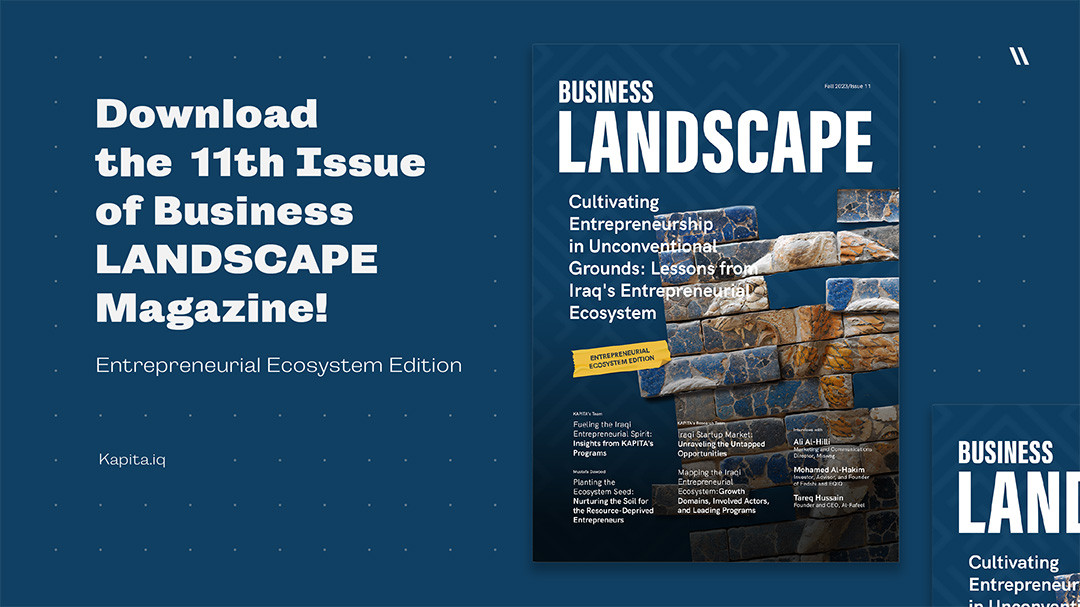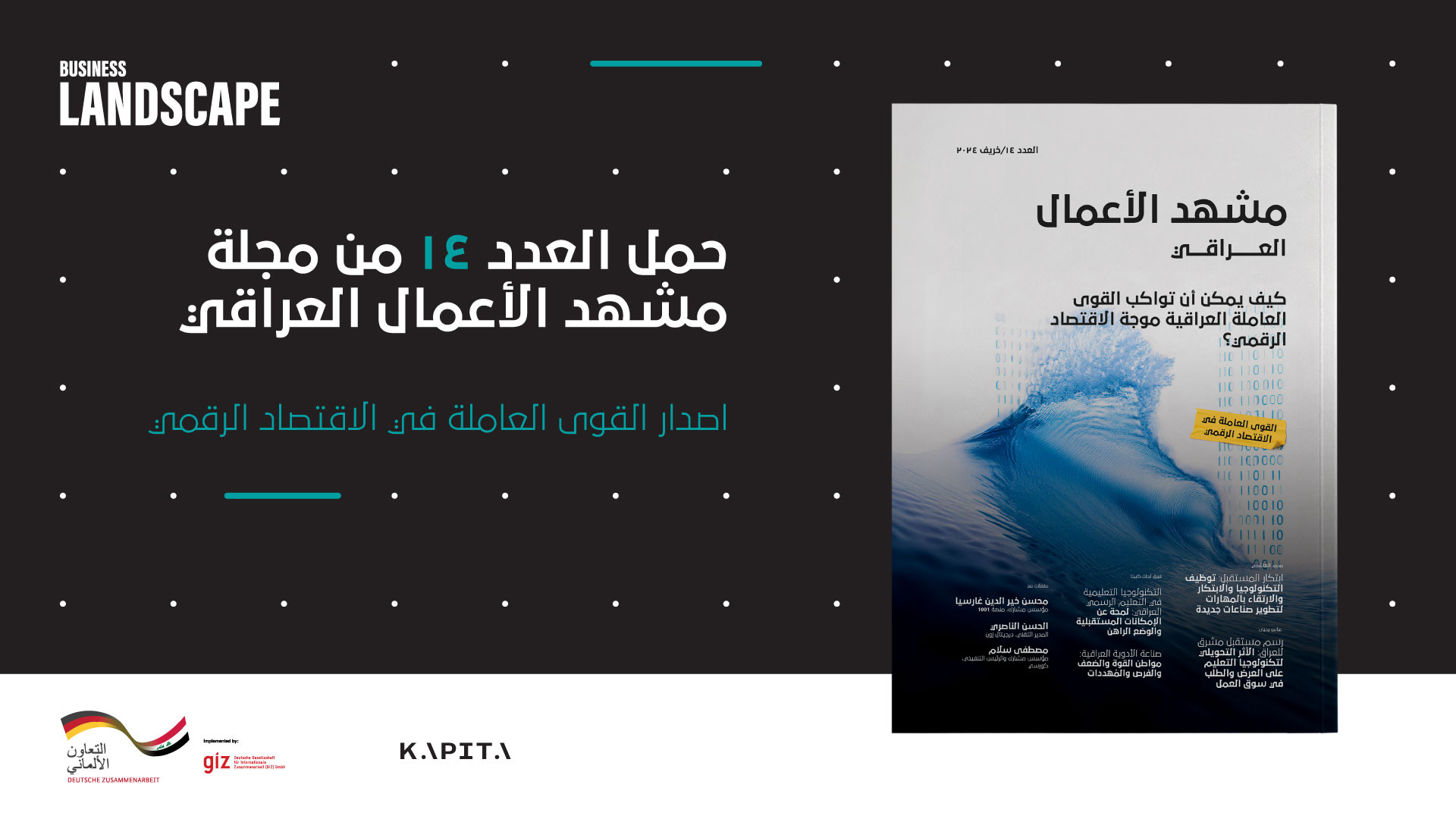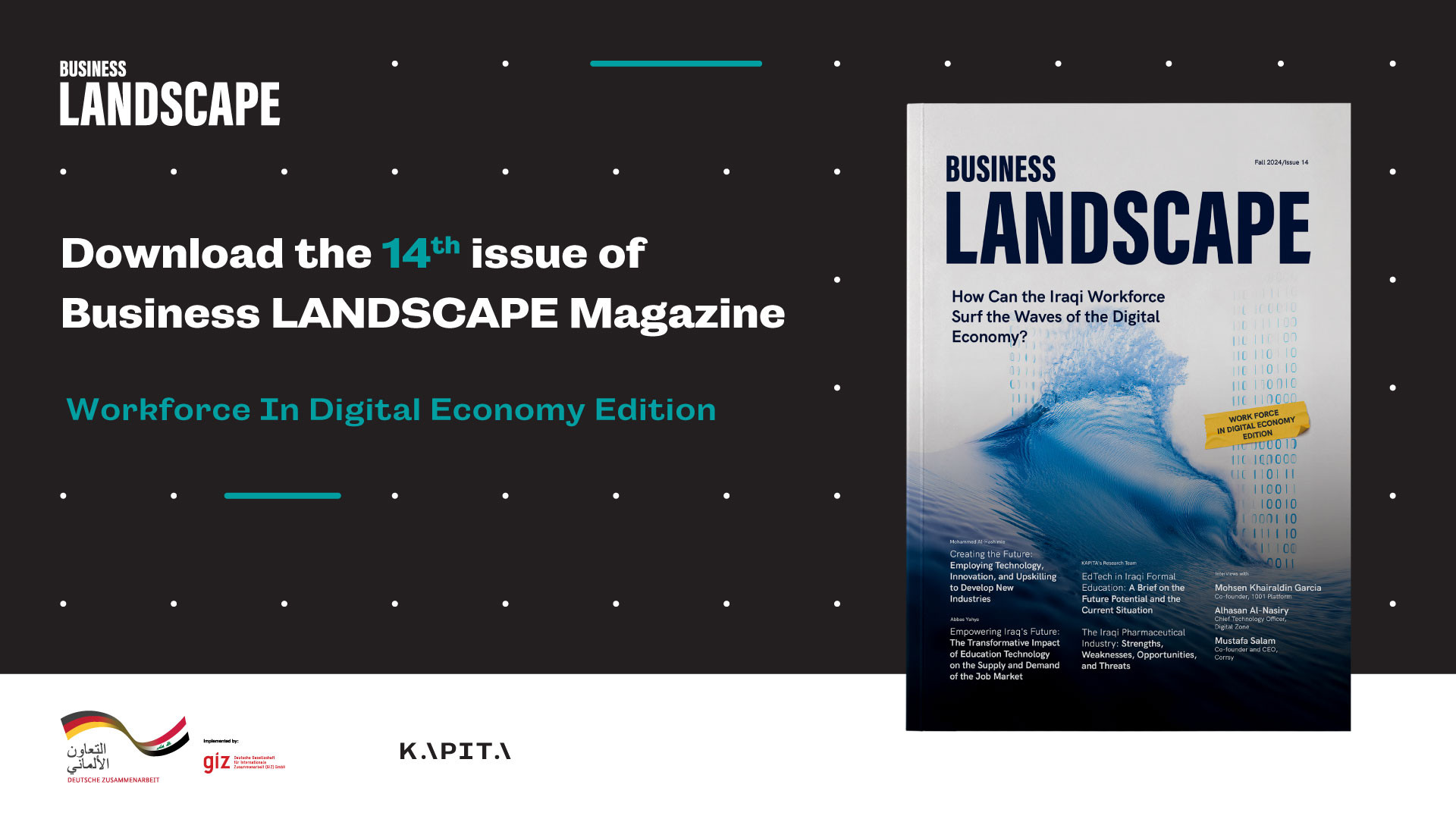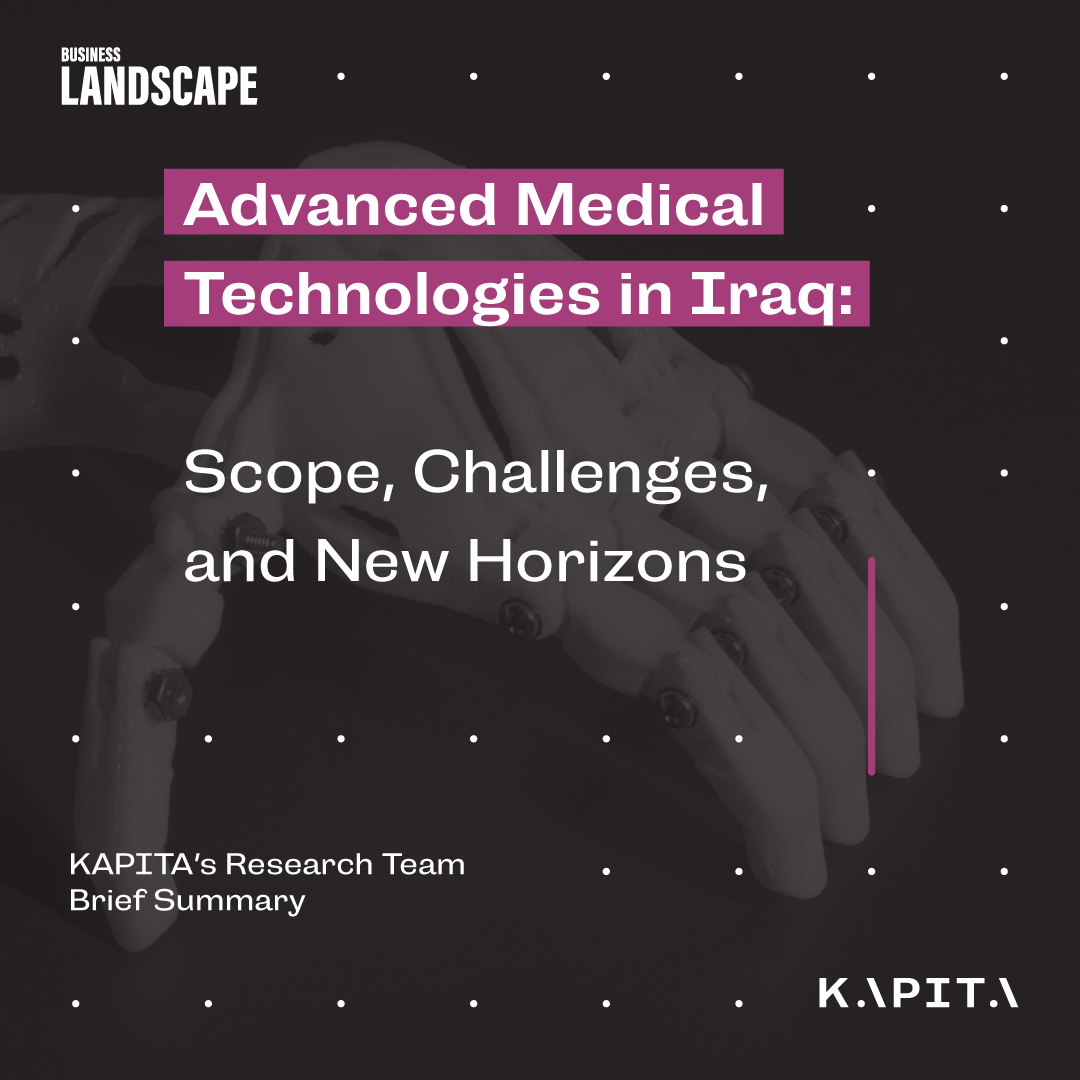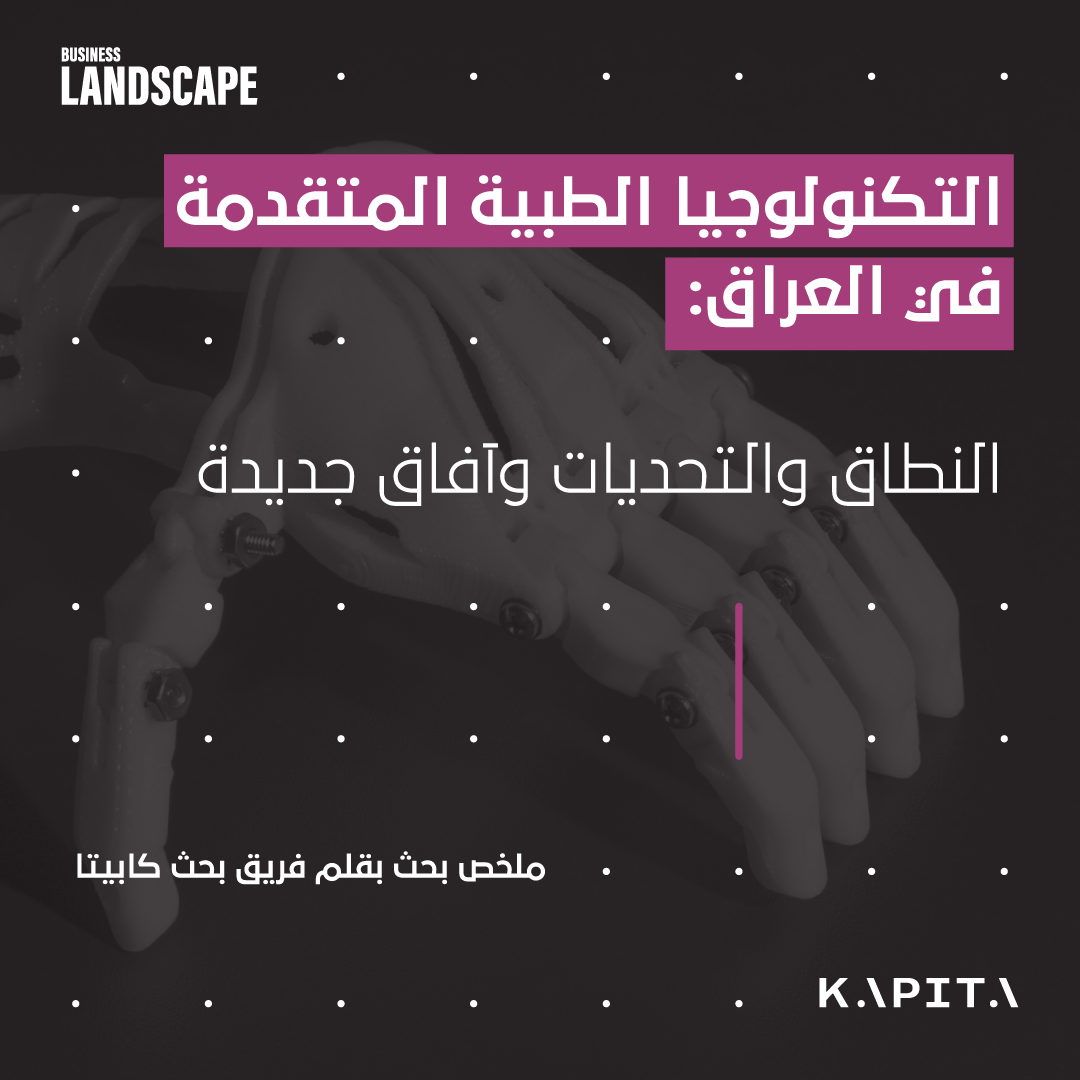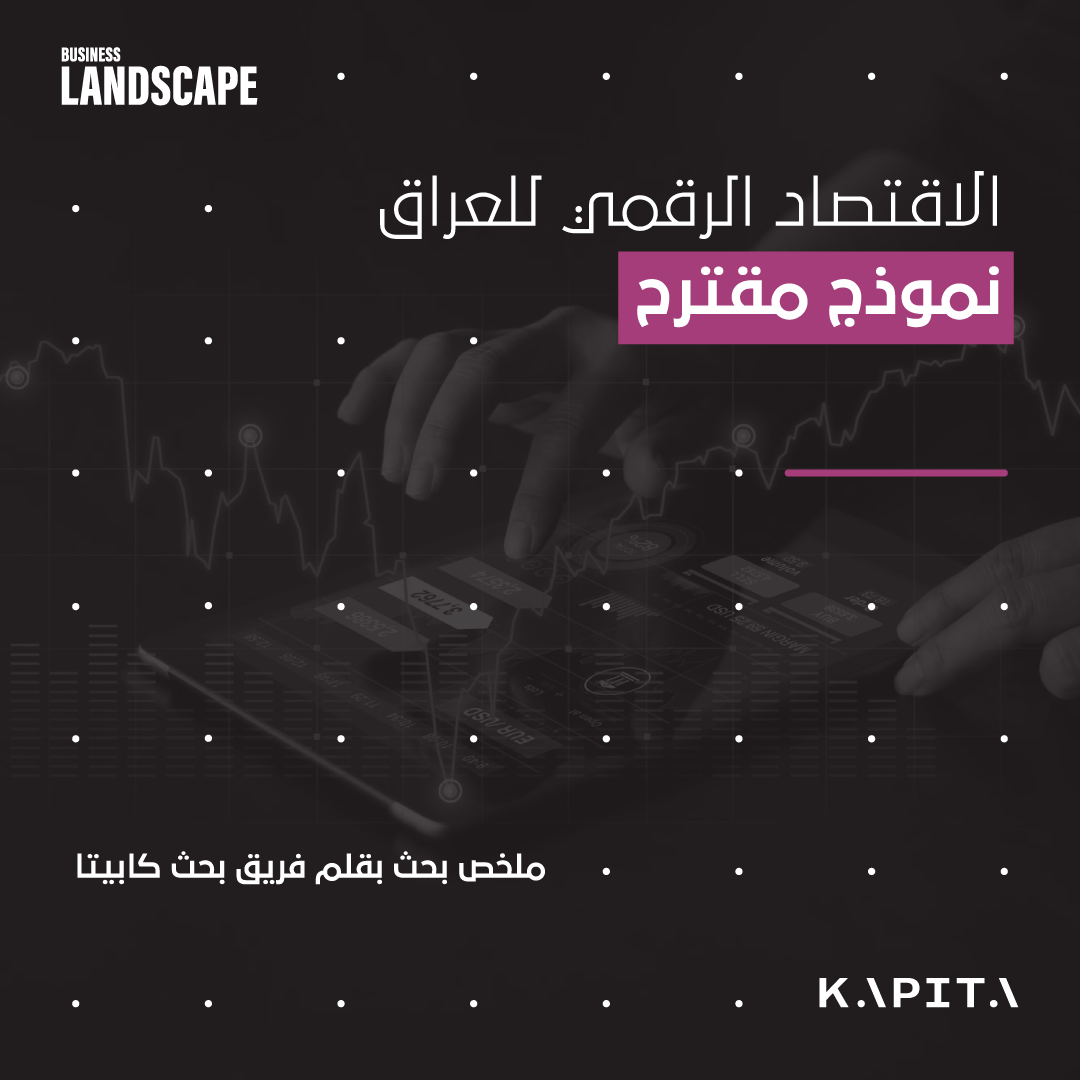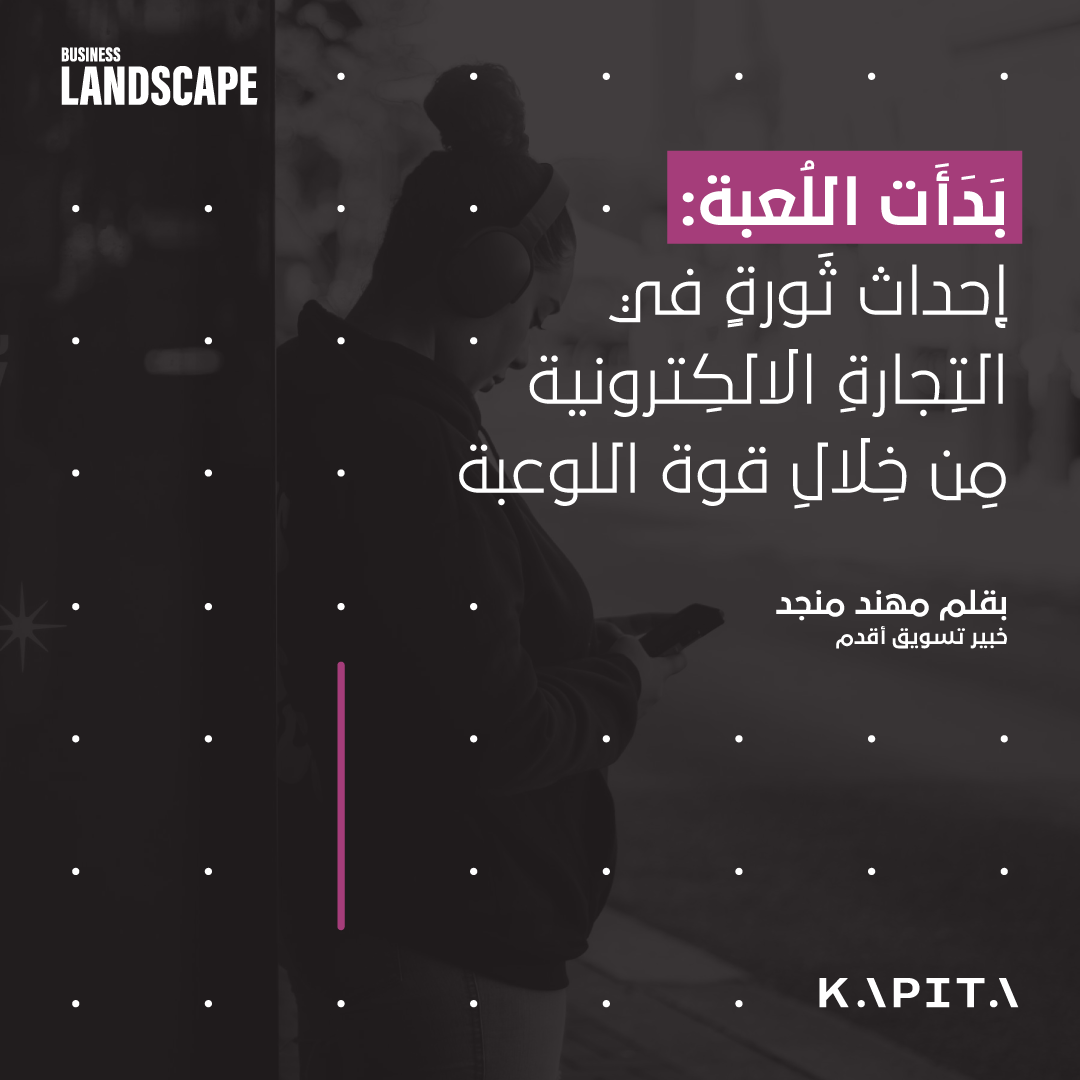We are delighted to introduce the milestone of the 11th edition of Business LANDSCAPE magazine, a quarterly publication that aims to shed light on the Iraqi private sector, its challenges, developments, investments, and entrepreneurial scene and serves as a platform for the Iraqi ecosystem.
In this edition, we navigate the Iraqi entrepreneurial ecosystem. The journey of entrepreneurial ecosystem development has not been smooth sailing. In the face of social challenges, under-developed market-based function, and proper private sector, the entrepreneurial ecosystem has developed and cultivated a generation of entrepreneurs and entrepreneurial employees through initiatives consisting of youth hubs, support programs, mentorship, and more. With these efforts gradually expanding and fostering a business culture, they contributed to the development of the private sector.
We share insights from KAPITA’s entrepreneurial support programs regarding the maturity of the ecosystem, the most appealing sectors for entrepreneurs, the entrepreneurial drive within the youth, and the most prominent challenge, such as insufficient access to finance and the gender gap. And how those programs contribute to bridging the gaps, addressing the challenges, building a more robust private sector, and encouraging a shift in the entrepreneurial mindset from the public to the private sector.
Moreover, while the ecosystem initiatives have been concentrated in the capital in the past, other governorates, such as Basra, started driving a vibrant entrepreneurial ecosystem through ambitious youth. Basra's strategic advantages, such as geographical location and thriving market, foster a conducive environment for development.
We also look into the current government’s efforts to promote entrepreneurship among youth. The Iraqi government is addressing the unemployment issues and seeking to cultivate entrepreneurship- allocating IQD 500 billion to the Small Projects Lending Fund. Riyada Initiative serves as an official statement by the Iraqi government on the need to utilize youth potential and ideas and invest them in the private sector.
Furthermore, we analyze the uniqueness of the entrepreneurial journeys of a number of Iraqi entrepreneurs. Entrepreneurs take different approaches and apply strategies shaped by their experiences to drive their businesses forward regardless of the stages of business building. Whether through hands-on industry insight, academic curiosity, or a desire for personal growth, their stories highlight the importance of problem-solving and resourcefulness as the foundation of successful ventures.
We highlight Iraq’s private sector challenges, of which access to finance is still the most significant obstacle for micro, small, and medium enterprises (MSMEs). Therefore, we cover the COVID-19 Adaptation and Recovery Pilot (CARP), a development cooperation initiative implemented to strengthen the institutional framework of the microfinance sector while working with micro-finance institutions, MSMEs, and startups- providing funding opportunities for young entrepreneurs to grow their businesses and reach their potential.
We delve into the principle of "doing less but doing well" and explore its transformative power on well-being. When Individuals, institutions, and societies prioritize quality over quantity, they create a chain of benefits across multiple levels.
It helps the organization eliminate unnecessary tasks, and promote better decision-making. This will translate into community well-being, waste reduction, strong social ties, that pour into the development of the ecosystem.
Moreover, KAPITA’s Research Team presents a roadmap of the Iraqi startup market as it explores demographics, essential economic indicators, investment opportunities, and ecosystem players. The Research Team also presents a chronological map of the Iraqi entrepreneurial ecosystem transformation in terms of actors and leading programs as well as the ever-growing demand for development.
Our series of interviews includes key figures in the entrepreneurial scene. Ali Al-Hilli, the marketing and communications director at Miswag, shares the evolution of the Iraqi ecosystem since 2013. He sheds light on the role of the open dialogues in 2023 regarding the challenges facing the local player, the pipelines created to promote startups, and the role of startups in the current digital transformation.
In addition, Mohamed Al-Hakim, investor, advisor, and founder of Fedshi and EQIQ, discusses the journey of building his venture capital fund and social commerce in Iraq and thoroughly examines the e-commerce sector in terms of development, challenges, opportunities, and potential.
Finally, Tareq Hussain, the founder and CEO of Al-Rafeel, walks us through the establishment of Al-Rafeel and highlights the company’s commitment to developing the local economy, fulfilling social responsibility, and changing consumer behavior. He pinpoints the main challenges and mentions the company's future product line expansion.
This edition explores the resilience and growth of Iraq's entrepreneurial ecosystem. From government initiatives to individual journeys, it highlights the spirit of entrepreneurship that is driving change and innovation. As Iraq continues to navigate its path toward a thriving private sector, these stories and insights serve as a testament to the nation's potential and determination.
